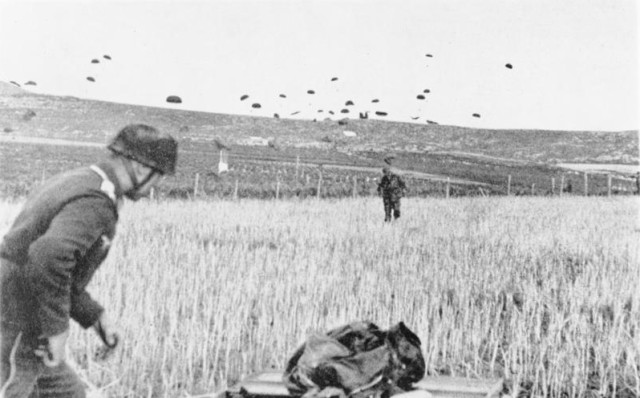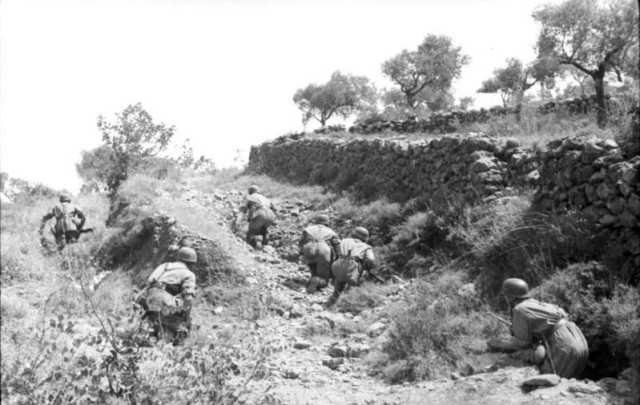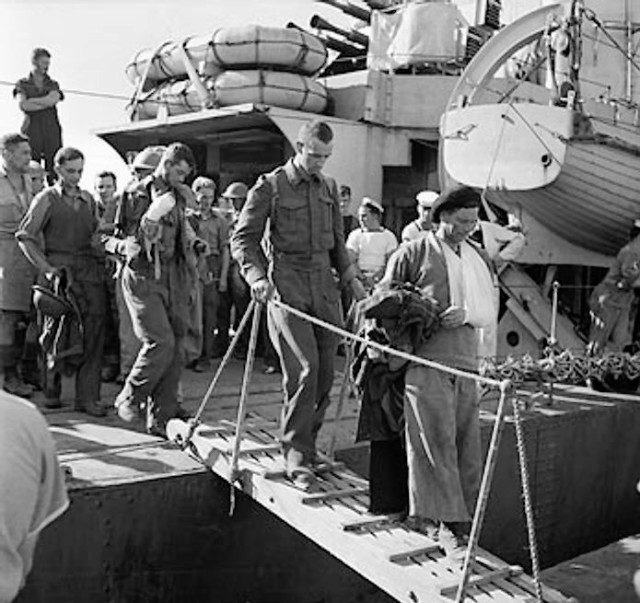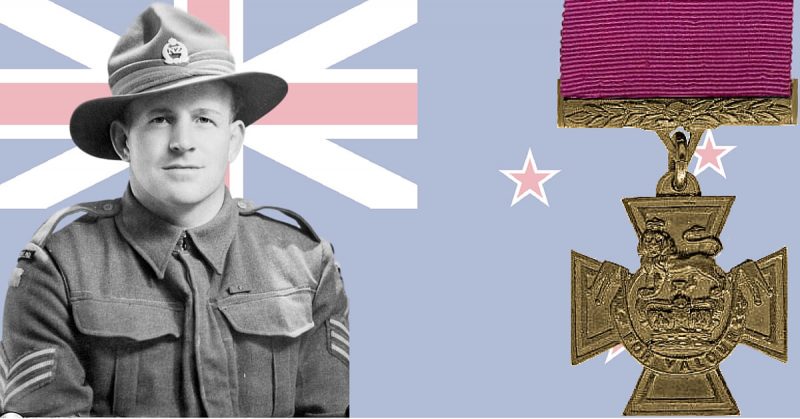Men who have endured combat together have a special bond that has famously been characterized as being like a “Band of Brothers.” One can only image just how far that analogy stretches when the man you endure combat with is your real brother by birth.
Both Clive Hulme and his brother Harold Hulme were serving on Crete when the Germans conducted their one and only Airborne assault of the war.
Thousands of German paratroopers descended from the skies of Crete and in an instant, the garrison was fighting for their lives. Having already fought with exceptional gallantry, when Clive Hulme got the word his brother had been killed he took his diligence to another level over the last few days of the battle.
Sergeant Hulme would set out alone or with a small group to hunt down Germany snipers and take them out of commission. By the time he was done, 33 German snipers had been successfully stalked and eliminated along with a good number of other German troops.
Only when he was severely wounded himself did he relent. For his actions on Crete, Clive Hulme would be awarded the Victoria Cross and a special place in the nightmares of the Germans who survived the battle.
Brothers at War
Clive Hulme was born in 1911 in Dunedin, New Zealand, and served as a farm laborer before the war. Shortly after the war broke out, Hulme along with his brother enlisted in the New Zealand Armed Forces. By May of 1940, Clive was on his way to Egypt when he was diverted to England during the Battle of Britain. By March of 1941, he had joined the 2nd New Zealand Division and was headed for action in Greece and eventually Crete.
Little did he know it, but once on Crete he was about to face the last big German paratrooper assault in World War 2. The Germans would descend upon Crete in May of 1941, and while they suffered heavy casualties resulting in a moratorium on future drops, the German numerical advantage would overwhelm the garrison.

Shortly after their landing, the German paratroopers began to form organized parties outside of Maleme Aerodrome in preparation for an assault on May 20th and 21st. And while the defending garrison could have just waited for the attack, military wisdom dictated that strategic counter-attacks would disrupt the enemy activity and provide for a stronger defense.
Ready for combat, Hulme was about to embark on a series of actions that would earn him a special place in Commonwealth Military History.

A Sniper Killer
Sergeant Hulme was quick to jump into action as he led his own patrols out to disrupt the enemy activity. This brought heavy rifle, machine-gun, and mortar fire down on them, yet they persisted.
But Sergeant Hulme’s claim to fame wouldn’t be how he dispatched the common enemy, but how he went after enemy snipers and reigned victorious. Over the next few days, Sergeant Hulme would set out on his own to stalk and eliminate the sniper threat with exceptional efficiency.
By the 25th he had returned to his unit with a healthy number of kills to his name and just in time for another counter-attack on the Germans in Galatas Village. When a determined enemy held up in a school was raining down destruction upon the Allied forces, Hulme leaped into action once again.
Alone, he charged the school, throwing grenades into the building. The German force was so disorganized by his assault that the counter-attack was a success pushing the Germans back.
Despite the gallant efforts by Hulme and his comrades, the German force began to overwhelm the garrison of Crete. By the 26th, Hulme’s brother was dead, and this determined sniper killer was filled with more resolve than ever.
As the withdrawal began, Hulme would continually stay behind to dispatch the snipers threatening his comrades. On May 27th near Suda Bay, five German snipers had set up positions in the surrounding hills. Hulme voluntarily set out in pursuit, eliminating every single one.
Avenging a Fallen Brother

On May 28th near Stylos, a mortar crew was wreaking havoc on a key ridge held by the defending troops inflicting heavy casualties as the evacuation came to fruition.
Without orders and on his own initiative, Hulme charged the enemy lines and killed the mortar crew. The relief from these mortars allowed the main body to withdraw, saving countless lives.
But Hulme wasn’t done yet. This man was determined. He worked his way around from the mortar position and killed his final three snipers. This brought his total to 33 snipers, and when he was in pursuit of number 34, he finally endured substantial wounds in his shoulder which caused him to withdraw.
Despite being ordered to the rear, he continued to direct the men out and organized as many stragglers as he could to the evacuation. His wounds were so bad that once out of Crete he was evacuated back to New Zealand for recovery. By February of 1942, he was declared medically unfit for duty and aside from a small stint on the home front this sniper killer’s career was over.
For his actions on Crete, Sgt. Hulme was awarded the Victoria Cross. He would remain in New Zealand until his death in 1982, but he would forever remain a national hero and inspiration for the men who proudly wear the uniform of the New Zealand armed forces.
